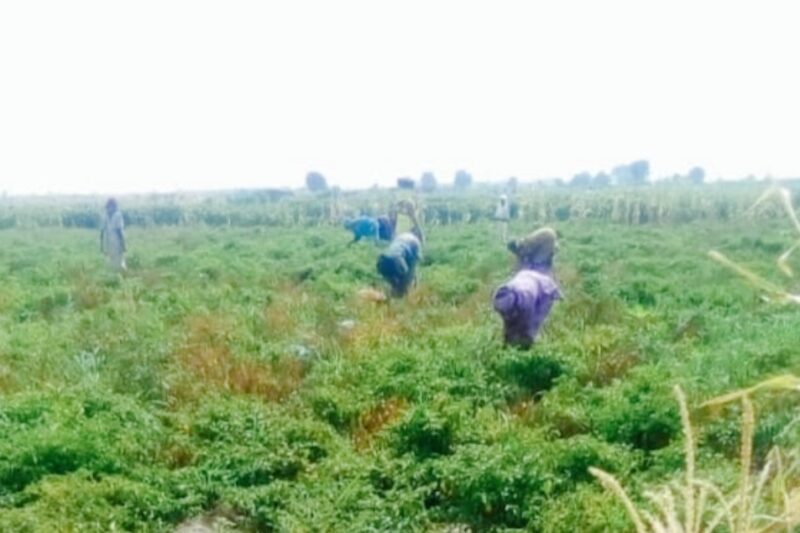Residents, mostly farmers, living and working close to the barracks say stray bullets are a common phenomenon and many people have been killed or wounded.
A woman farmer from Maiduguri, who was working on her lands on Friday, October 6, was killed by a stray bullet shot from the nearby Maimalari Military Barracks.
Fanna Maikudiye’s death has made residents and farmers in the villages close to the barracks angry because this was not the first time an innocent person had been killed by stray bullets shot during demonstrations or weapons training and testing behind the barracks.
Many villagers had also been wounded during these operations.
Modu Bulama Ali, a farmer, confirmed that over the years many people had been killed or wounded when soldiers were conducting demonstrations or testing firearms and other weapons.
“It is deeply worrying and scary for people living around the barracks, particularly for farmers. The shooting usually starts at 9am. They do it every morning. It’s especially dangerous for farmers during the rainy season when most of the people living near the barracks go out to their lands. Every year at least two or three people die from stray bullets and many are wounded.
“Most people are afraid when they are working on their farmlands because they know there is a chance that they will be hit by a stray bullet – and not shot by an insurgent but by the very people who should be protecting them.
“A while ago, a group of residents and farmers went to the barracks to complain about the reckless shooting. But the military denied them access and told them that the soldiers would not stop testing weapons.”
Modu Bulama Ali said the federal and Borno State governments needed to intervene before it was too late.
“If they do not do something about the situation, more people will lose their lives or get wounded. This is affecting all the people who live near to the barracks or whose farmlands are close by.”
Fatima Bukar, a farmer, said Fanna, the woman who was killed on Friday, was a widow whose husband died about a year ago. She had been left to bring up her young children alone. She hoped Fanna’s relatives would be able to take care of the children who were now “poor orphans”.
“It’s imperative for the government to speak to the soldiers at the barracks and tell them to stop these shooting demonstrations and to prioritise lives of the people.
“We realise that the military needs to conduct demonstrations, test weapons and train new soldiers but they should do so where it is safe. They know that most of the people who live around the barracks are farmers. This is how most of us earn a living. The military is putting our livelihoods at stake now.”
Mohammed Ali, a member of the Civilian Joint Task Force (CJTF) Sector 10, which operates around the Maimalari Military Barracks, told RNI that it was common knowledge that stray bullets coming from the barracks had killed and wounded innocent people.
“This is especially so during the rainy season when people are out in their farmlands. Just recently CJTF members on patrol found the body of a woman [Fanna Maikudiye] who was killed by a stray bullet. Even though the soldiers are not deliberately shooting or targeting innocent people, it is scary for those whose farmlands are behind the barracks. The government needs to draw the military’s attention to this and get them to stop shooting in the direction of the farmers while testing their weapons, especially during the rainy season.
“On the other hand, the farmers must adhere to the timeframe during which the military tests its weapons. The farmers and soldiers need to come to some agreement about the time. Normally, the soldiers start testing weapons at 9am and carry on until they finish. If a time structure was put in place, the farmers and other residents could ensure that they are not in the area then. In that way, their safety would be assured.”
SHETTIMA LAWAN MONGUNO






